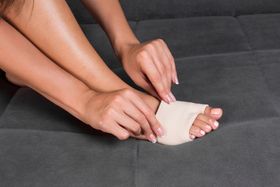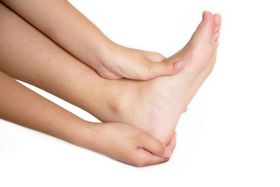Upstep Answers
Our team answers your questions about the causes and treatment of various podiatric conditions, including plantar fasciitis, flat feet, foot pain, and the use of custom orthotics.
Related Articles

Treating Metatarsalgia With Insoles and Other Orthotic Devices
Janik Sundstrom
January 30, 2024

Heel Bursitis Home Treatment Guide
Babafemi Adebajo
July 2, 2022

5 Best Insoles for Standing on Concrete All Day—Podiatrists’ Choice for 2025
Babafemi Adebajo
May 14, 2025

6 Common Foot Problems Associated with Wide Feet: Prevention Over Cure
Jasrah Javed
February 3, 2025

Common Soccer Foot Injuries: Conditions, Causes, and Cures
Jasrah Javed
March 2, 2025
Recent Posts
Blog
Babafemi Adebajo
5 Daily Exercises for Peripheral Neuropathy Relief
Blog
Janik Sundstrom
The Amazing Benefits of Rolling Out Your Feet
Blog
Janik Sundstrom



